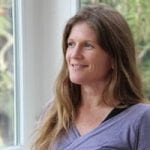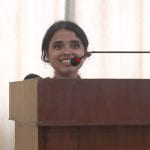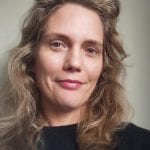UNESCO World Conference on Culture and Arts Education 2024

Mobile Arts for Peace
Online side event
Artful research: Informing national curriculums and youth peacebuilding policy in Nepal, Rwanda, Kyrgyzstan, and Indonesia
Date:
Friday 9 February 2024
Times:
12:00 – 13:00 CET
11:00am – 12.00pm GMT 15:00 – 16:00 GST
Hosted by the University of Lincoln on Zoom
Related themes to the World Conference on Culture and Arts Education
This interactive and participatory webinar aligns with the following five themes of the World Conference:
- Access and inclusion
- Contextual education and cultural institutions
- Resilience and well-being
- Lifelong and life-wide learning
- Culture and education policies
Read more about the World Conference on Culture and Arts Education 2024

MAP is looking for future collaborators
If you would like to discuss your ideas, please contact Dr Sarah Huxley:
shuxley@lincoln.ac.uk who will be participating in the WCCAE in Abu Dhabi
Key speakers
Agenda
- Welcome and Introduction
- Co-creation with youth: adapting cultural art forms for everyday peacebuilding
- Developing arts education curriculums (within existing curricula)
- Learning experiences: ways of engaging artists, youth researchers, policymakers and practitioners
- Future Directions: Informing policy to strengthen post-conflict reconciliation and healing
See below for the full programme
Introducing Mobile Arts for Peace
‘Mobile Arts for Peace (MAP)- Informing the National Curriculum and Youth Policy for Peacebuilding in Kyrgyzstan, Rwanda, Indonesia and Nepal’ is an international, interdisciplinary project that seeks to shed light on the value of arts-based methods for peacebuilding by and for young people in conflict-affected countries.
July 2020 – July 2024
Phase 2 (2023 – 2024): 13 projects
Partnered overall with:
- > 150 civil society organisations
- > 21,000 youth participants and researchers
- > 800 policy and decision-makers (at local and national levels)

Full programme
In the introduction to this webinar, Prof Ananda Breed (Principal Investigator of MAP, from the University of Lincoln in the UK) will introduce the origins and methodology of this international research project. Breed will outline how MAP is generating new learnings regarding how artful spaces of dialogue can contribute towards educational/youth policy reforms. This is achieved through contextual youth adaptations of arts-based cultural forms, which are then communicated inter-generationally. MAP is a direct translation of five themes in the UNESCO Framework for Culture and Arts Education.
In the next session, Prof Ananda Breed & Dr. Sarah Huxley (Research Associate & Youth Specialist) will present case studies aligned with the guiding principle of ‘co-creation’, within the UNESCO Culture & Arts Education Framework. The case studies relate to progressive education (Nepal & Indonesia); gender-based violence (Kyrgyzstan); and well-being and mental health (Rwanda). This will include video footage and opportunities to discuss and engage with the material.
The third part of the webinar will discuss how MAP is developing arts education curriculums (within existing curricula). This directly relates to Objective 3 of the Framework: to “Integrate effectively culture and arts education…in curricula”. Here, Professor Ananda Breed & Dr Binod Prasad Pant from Kathmandu University will discuss the pilot development of a Nepal Arts Education Framework, and Dr Sarah Huxley will share early work on developing a local arts education curriculum through a partner organisation Janaki Women Awareness Society (Nepal).
The next session will focus on Learning Experiences: in particular ways of engaging artists, youth researchers, policy makers and practitioners. This aligns directly with one of the Frameworks Implementation modalities. The discussion will present the re-framing of an inter-generational National Dialogue Roundtable with the UNESCO Office in Kathmandu, and Juhi Adhikari a young researcher from MAP Nepal will share her experience/learnings from this event and throughout the project. Dr Sarah Huxley will also briefly share the project’s experimentations with communications, including online through ‘Talking Back’ and Policy (Art) Briefs.
Finally, Professor Ananda Breed will share future directions including MAP Rwanda’s sustained contributions towards the Youth Mental Health Policy through psychosocial arts-based (game) modules, film creation and more. This aligns with the Framework’s drive towards inclusion and ‘appreciation of cultural diversity’ to promote ‘healing through culture and the arts’.
The session will then open a space for discussion, a sharing of approaches, and welcome engagement from participants.

Mobile Arts for Peace is an AHRC/ GCRF Network Plus project.
MAP is a collaborative project between civil society organisations and CSO workers, cultural organisations and artists, health institutions and psychosocial workers, universities and researchers, and children and young people.



